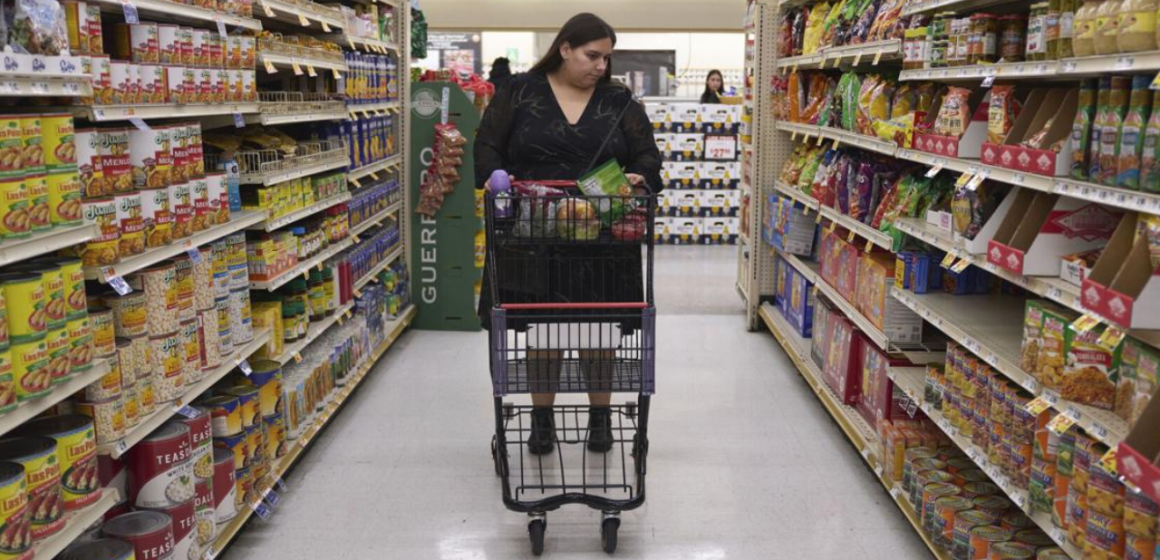The Supplemental Nutrition Assistance Program (SNAP), widely known as food stamps, is a crucial support for millions of low-income Americans.
This program helps families buy nutritious food, ensuring they have access to the basics. However, significant changes to the SNAP program are set to take place in 2025, and these new rules could result in some recipients losing their benefits.
Here’s everything you need to know about the changes and how they might affect you.
What Are the New 2025 SNAP Requirements?
The 2025 SNAP changes focus on making the program more efficient, but some of these adjustments may impact people who rely on food assistance.
These updates cover work requirements, income limits, and the process for verifying eligibility. While the intention behind these changes is to target benefits to those who need them the most, they could create problems for many individuals who are struggling to meet these new rules.
Stricter Work Requirements
One of the most significant updates is the tightening of work requirements for adult SNAP recipients. Starting in 2025, adults without dependents (known as ABAWDs) will need to work at least 20 hours a week to continue receiving benefits.
Before this change, the work requirement was more flexible, with some exceptions for people who couldn’t find work due to illness or lack of job opportunities.
This stricter rule could cause hardship for people who are struggling to find steady employment, especially with a fluctuating job market. Those who can’t secure consistent work might find it difficult to meet the new requirements, making them ineligible for food stamps.
Income and Asset Limits
In addition to the work requirements, the new SNAP guidelines in 2025 will enforce tighter limits on income and assets.
This means that families and individuals will be allowed to earn or save only a certain amount before they no longer qualify for benefits. For many, even small increases in income or savings could result in disqualification from the program.
For example, someone who receives a tax refund or inheritance could exceed the asset limit and lose their food assistance.
Revised Reporting and Verification Requirements
The 2025 rules will also require recipients to report any changes to their income or household status more frequently.
This includes verifying employment status and family composition. If recipients fail to provide necessary documentation or update their information on time, they could lose their benefits—even if they are still eligible.
This added paperwork and reporting could be a challenge for people in unstable living situations or those without access to resources to navigate the system.
Who Will Be Affected by the Changes?

While many SNAP recipients will not see major changes, certain groups may struggle to maintain their eligibility under the new rules.
Low-Income Workers
People working low-wage jobs, particularly part-time workers, could find it hard to meet the new 20-hour workweek requirement.
Jobs in areas with high unemployment or those with irregular hours may make it difficult for workers to find consistent employment. These low-income workers might also find it hard to stay below the income thresholds, even though they are still financially struggling.
Older Adults and People with Disabilities
Although many older adults and people with disabilities are exempt from the new work rules, some may face difficulties proving their exemption.
For those who don’t meet the exact exemption criteria, there is a risk they might lose their benefits despite their challenges.
Families with Unpredictable Incomes
Families who experience fluctuations in their income, such as from medical emergencies, temporary job loss, or part-time work, may have trouble meeting the new reporting requirements.
Even a small income increase, like a raise or temporary bonus, could push them over the eligibility limit, leaving them without vital support.
Rural Areas and Limited Job Opportunities
People living in rural or economically disadvantaged areas could be at a disadvantage due to the limited job opportunities available.
With fewer full-time jobs offering steady hours, it may be difficult to meet the new 20-hour weekly requirement. As a result, these individuals may struggle to maintain their eligibility for SNAP benefits.
People with Multiple Jobs
Individuals working multiple part-time or gig economy jobs might also face difficulties.
If they are splitting their hours across different employers and their total weekly hours fall short of the 20-hour requirement for a single employer, they might find themselves disqualified from receiving benefits.
How Can SNAP Recipients Prepare for the 2025 Changes?

Although these changes won’t take effect until 2025, there are steps recipients can take now to make sure they remain eligible for benefits.
Stay Informed
It’s essential for recipients to keep up-to-date with the latest information about SNAP. The U.S. Department of Agriculture (USDA), which manages SNAP, will release more detailed guidelines in the lead-up to 2025. Keeping track of these updates can help recipients stay prepared.
Meet Work Requirements
If you are an able-bodied adult without dependents, make sure you are meeting the new 20-hour weekly work requirement.
Keep detailed records of your employment, hours worked, and job searches. If you’re struggling to find a job, reach out to local employment services for assistance.
Track Income and Assets
It’s crucial to stay on top of your income and asset levels. If your financial situation changes—whether from a raise, tax refund, or other source—make sure to report it to your local SNAP office as soon as possible.
Keep Documentation Updated
To avoid losing benefits, make sure your contact information and household details are always up-to-date with your local SNAP office. Timely submission of any required documents is vital to prevent delays or issues with your benefits.
Conclusion
The upcoming SNAP changes in 2025 aim to target food assistance to those who need it most, but they could impact many recipients, leaving them without vital support.
Recipients must stay informed, meet the new requirements, and take action to maintain eligibility. By following these steps, individuals and families can ensure they continue to receive the assistance they need to avoid hunger and financial instability.
Note: Every piece of content is rigorously reviewed by our team of experienced writers and editors to ensure its accuracy. Our writers use credible sources and adhere to strict fact-checking protocols to verify all claims and data before publication. If an error is identified, we promptly correct it and strive for transparency in all updates, feel free to reach out to us via email. We appreciate your trust and support!



Leave a Reply